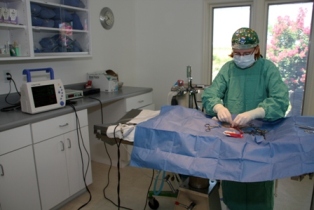We offer emergency pet care. For after-hours and weekend emergencies, please call our office at 931-967-6345 and follow the instructions to page our emergency service. A professional and knowledgeable technician will return your call within 15 minutes. Our emergency technician can answer questions and help you determine if your pet’s situation requires immediate medical attention, and our doctors are generally available to see emergencies for our existing clients. If our doctor is not immediately available, the technician can provide you with contact information for local 24-hour emergency clinics (located in Murfreesboro, Chattanooga, and Huntsville). Some veterinary clinics advertise emergency pet care but take more than an hour to answer emergency calls or never respond at all – we pride ourselves on responding quickly and appropriately to your emergency needs.
Emergency Pet Care Information
ASPCA’s List of Top 10 Pet Poisons of the Year
Pet Health – Triage for Dog and Cat owners; What Warrants a Quick Trip to the Vet?
By Amber Smith, The Post-Standard
Dr. Elizabeth Dole, Contributing Columnist
January 12, 2010
 As adults, we decide when we are sick enough to need medical attention. However, our pets rely upon us to make that decision for them. Here are some guidelines to help you determine if and how quickly your dog or cat should be seen by their veterinarian.
As adults, we decide when we are sick enough to need medical attention. However, our pets rely upon us to make that decision for them. Here are some guidelines to help you determine if and how quickly your dog or cat should be seen by their veterinarian.
Let’s start with the true emergencies.
If your pet has experienced trauma, is actively bleeding or has been hit by a car, they should be taken immediately to your veterinary hospital. Other situations in which immediate veterinary care is recommended include seizures lasting more than a few minutes; collapse; shortness of breath or very rapid breathing; heat stroke; pale or white gums; trouble giving birth; and the sudden inability to walk or dragging of the rear legs.
A male cat or dog who is straining unsuccessfully to urinate or a dog with a distended abdomen who is retching up white froth also require immediate veterinary attention for potential life-threatening illnesses. And, if your pet has ingested antifreeze, a foreign object or even some of your own medications, get them to your veterinarian right away.
It is always helpful to call your veterinary hospital to alert them that you are on your way to see them with an emergency.
An appointment should be scheduled the same day for a pet who is experiencing a complete loss of appetite or persistent vomiting or diarrhea, especially if blood is present. If your dog or cat is very lethargic, has a fever greater than 103 degrees Fahrenheit, or is coughing acutely, they should also be seen the same day. Other signs that would warrant an appointment within 24 hours include superficial skin wounds or abscesses, blood in the urine, eye discomfort or discharge, foul-smelling ears, inflamed skin, and holding up one leg completely.
Animals who are experiencing itchy ears, minor skin irritations, coughing or sneezing, a decreased appetite, increased thirst or urination, softer than normal stools, a bad mouth odor or stiffness/lameness should be examined by their veterinarian at the earliest convenience, usually within a few days. Any new lumps under or on the skin of your pets should also be evaluated and not just assumed to be benign.
Becoming familiar with what is normal for your pet is most helpful in determining if your pet needs to be examined by their doctor. You know your pet best and can recognize when they are even just a little “off.” And, remember, if you are still unsure if your pet needs to be seen, it is best to call your veterinarian’s office, tell them what is going on, and let them help you to make that decision.
Dr. Elizabeth Dole is a staff member at Stack Veterinary Hospital, 5092 Velasko Road in Syracuse, She has two black labs, Rosie and Lexie.
